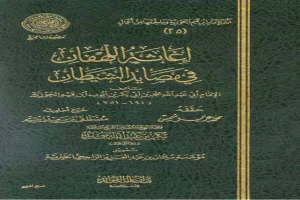Newly released
This book is new and will be uploaded as soon as it becomes available to us and if we secure the necessary publishing rights.

إغاثة اللهفان في مصايد الشيطان Book PDF
(0)
Author:
Ibn Qayyim Al-JawziaNumber Of Reads:
19
Language:
Arabic
Category:
ReligionsSection:
Pages:
1397
Quality:
good
Views:
889
Quate
Review
Save
Share
Book Description
Ibn Qayyim Al-Jawzia
Abu Abdullah Shams al-Din Muhammad bin Abi Bakr bin Ayyub bin Saad bin Hariz al-Zar’i (691 AH - 751 AH / 1292 AD) known as “July 1350 AD” (July 1350 AD) He is a jurist, hadeeth, interpreter and scholar of a diligent Muslim and one of the most prominent imams of the Hanbali school of thought in the first half of the eighth century AH. Ibn al-Qayyim was born in the Hanbali school of thought. His father, “Abu Bakr ibn Ayyub al-Zari’i,” was the custodian of the “Al-Jawzia Hanbali School,” (1) and when he grew up and contacted his sheikh Ibn Taymiyyah, a transformation occurred in his scientific life, so he did not adhere to his opinions and fatwas with what was stated in the Hanbali school except with the conviction and approval of the evidence from the book. And the Sunnah, then on the opinions of the Companions and the traces of the predecessors, and that is why scholars consider him one of the mujtahids.
Book Currently Unavailable
This book is currently unavailable for publication. We obtained it under a Creative Commons license, but the author or publisher has not granted permission to publish it.
Rate Now
5 Stars
4 Stars
3 Stars
2 Stars
1 Stars
إغاثة اللهفان في مصايد الشيطان Quotes
Top Rated
Latest
Quate
Be the first to leave a quote and earn 10 points
instead of 3
Comments
Be the first to leave a comment and earn 5 points
instead of 3